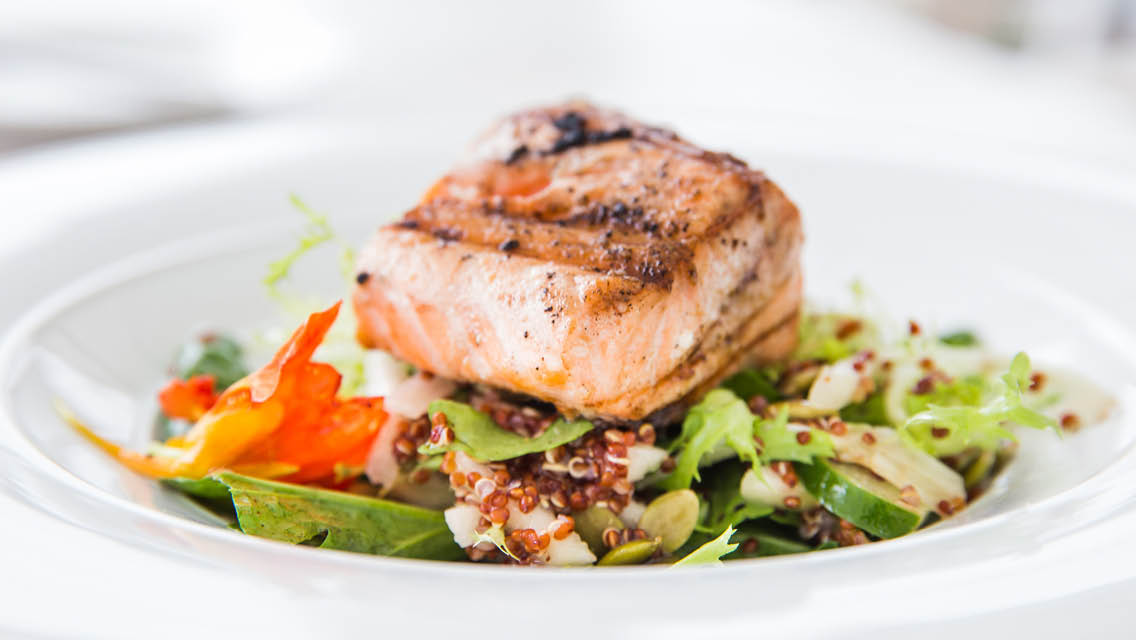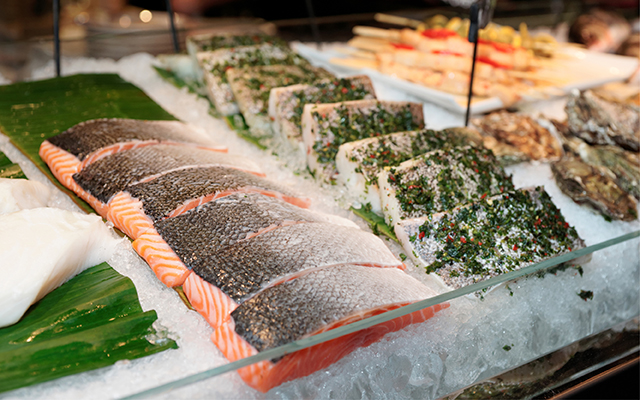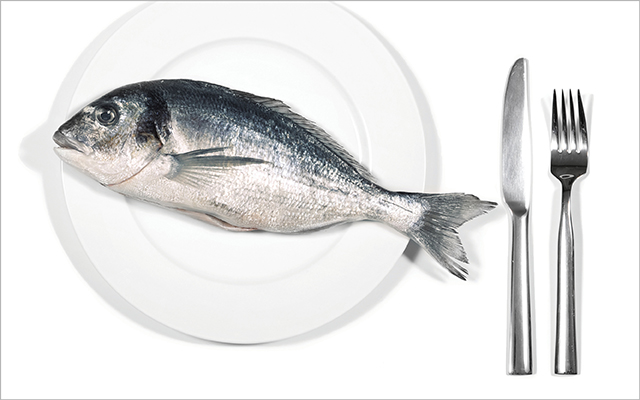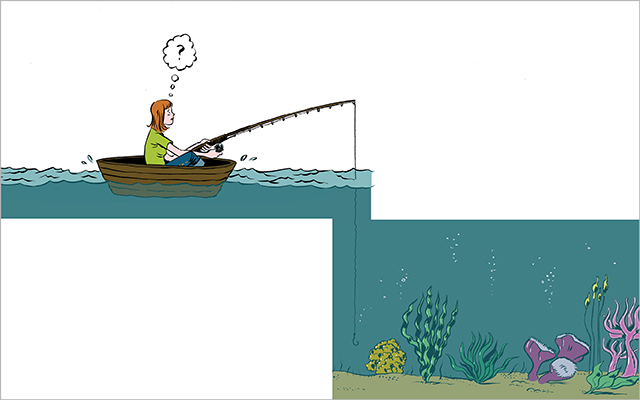There are many reasons you might want to steer clear of eating a particular species: It may be overfished, high in mercury, or endangered. It might be caught in ways that are harmful to workers or the aquatic environment.
The Monterey Bay Aquarium Seafood Watch includes regularly updated sustainability ratings. The EDF Seafood Selector is also a good tool. The following are fish that frequently appear on their “best avoided” lists:
- Atlantic Halibut: Wild Atlantic halibut often has high levels of mercury. Pacific halibut is still a good choice.
- Atlantic Salmon: Although Pacific salmon are usually wild caught, most Atlantic salmon are farmed; they are typically raised in offshore floating cages in the Canadian Atlantic, Chile, Norway, and Scotland. They suffer from problems similar to those of livestock in large-scale farms on land: They live in crowded quarters, contract illnesses that require antibiotics, and are fed other fish that are harvested en masse.
- Catfish, imported: Imported catfish undermines the production of U.S. farmed catfish, which tends to be responsibly farmed, using minimal antibiotics.
- Chilean Sea Bass: These large, slow-growing fish have been brought to the brink of extinction.
- Cod: Stocks of Atlantic cod collapsed from overfishing in the mid-1990s and have not recovered. Pacific cod from Japanese fisheries are caught by trawls and are overfished. Alaskan cod, however, is well managed.
- Crab, imported: Crab harvesting in the United States gets a high sustainability rating from the EDF Seafood Selector, but the majority of imported red and blue king crabs are harvested unsustainably by one poorly managed Russian fishery.
- Freshwater Eel: Beloved by sushi fans, unagi eel rates high in toxins. (To learn more about the best and worst choices for sushi, check out the EDF Seafood Selector.)
- Mahi Mahi: This saltwater fish from Peru and Taiwan is typically caught with long lines that attract bycatch.
- Octopus: Most varieties of this highly intelligent species are overfished.
- Orange Roughy: Also overfished, orange roughy take up to two decades to reach maturity; populations require a long time to rebound.
- Pollock: It matters where it comes from — most Atlantic and Alaskan pollock is sustainable, but Canadian and Russian fishers use gill nets, trawls, and long lines that produce substantial bycatch.
- Shark: Overfishing has been a disaster for shark populations as well as oceans, because these predators play an important role in maintaining biodiversity. Shark often contains high levels of mercury.
- Shrimp: Farm shrimp ponds are replacing mangroves in many areas, contributing to shoreline erosion and worsening the impact of tsunamis. Fresh shrimp is often caught by trawls using forced labor. Bycatch is also an issue, with 2 to 10 pounds of other fish caught for every pound of shrimp. Unless you can get wild-caught shrimp in season near one of the U.S. coasts, it’s best to steer clear.
- Spiny Lobster, imported: This crustacean often comes from Belize, Brazil, Honduras, and Nicaragua, where regulations and stock management are weak.
- Squid: Squid fisheries are largely unregulated and not well studied. Squid are also typically caught with bottom and midwater trawls, with substantial bycatch.
- Swordfish: This grand saltwater fish often contains high levels of mercury and is typically caught with longlines.
- Tuna: Tuna — including albacore, bluefin, skipjack, and yellowfin — can accumulate high mercury content, and it is typically unsustainably caught and overfished. Japanese hamachi (Pacific yellowtail tuna), beloved by sushi fans, often contains high levels of toxins. Pole-caught tuna is much more sustainable.
This was excerpted from “How to Find Sustainable Seafood” which was published in the June 2022 issue of Experience Life.





This Post Has 0 Comments